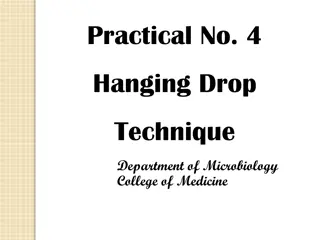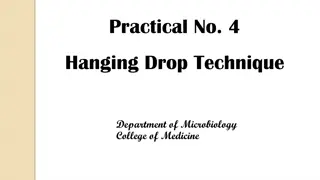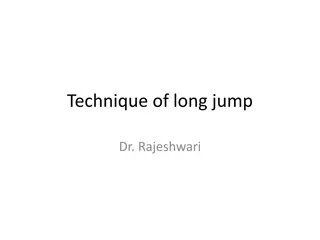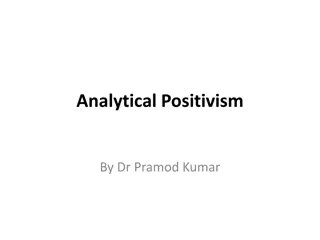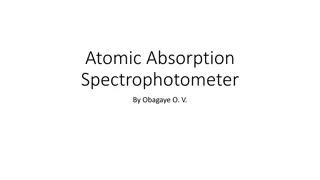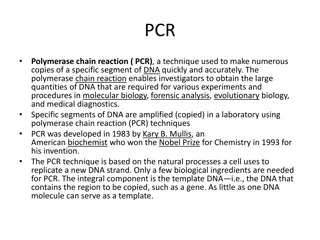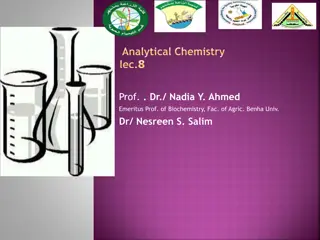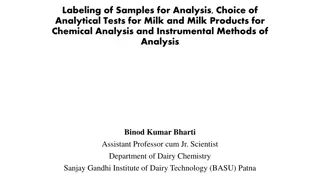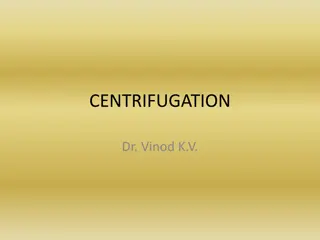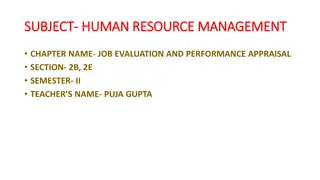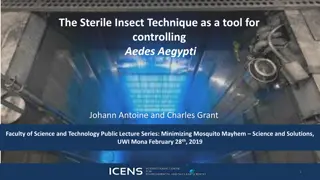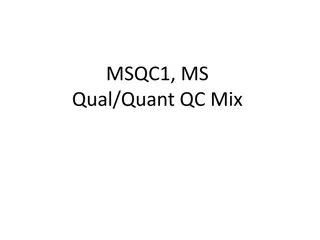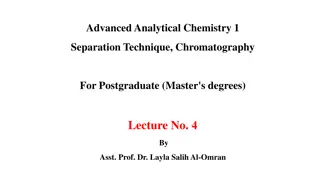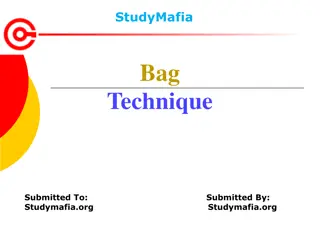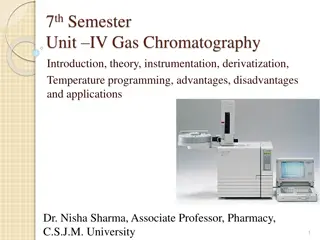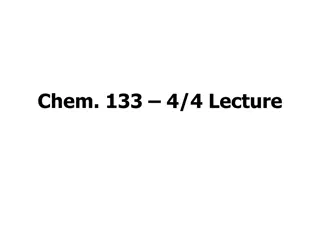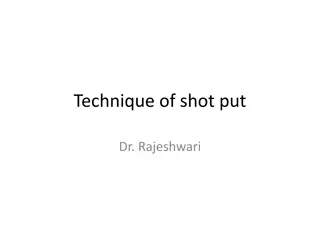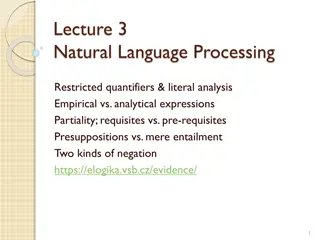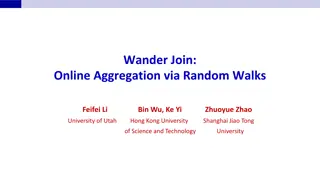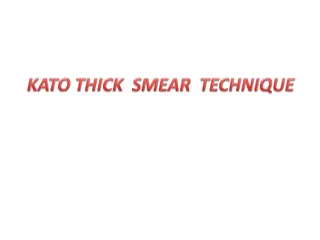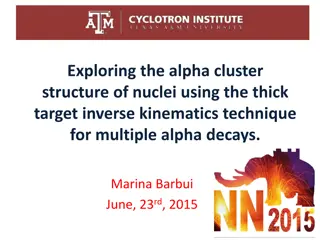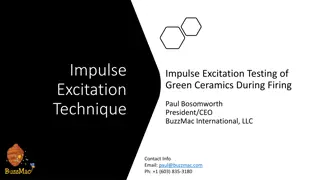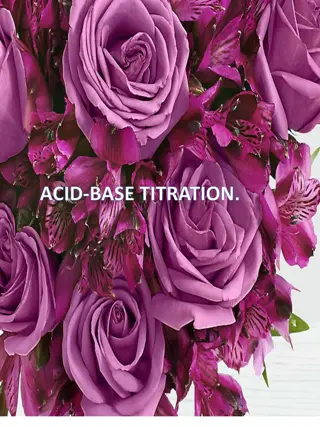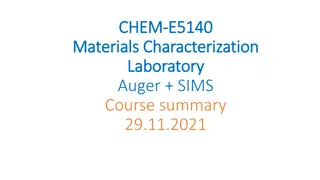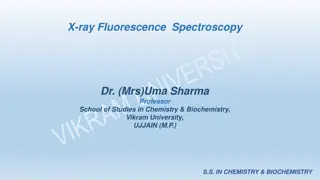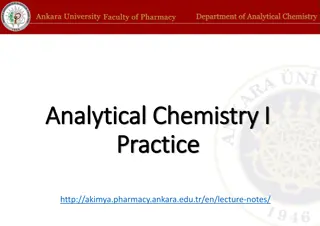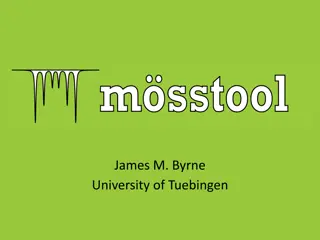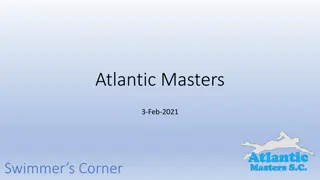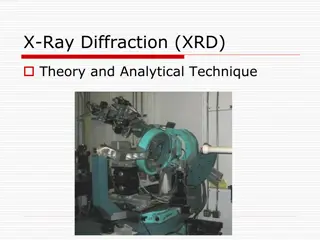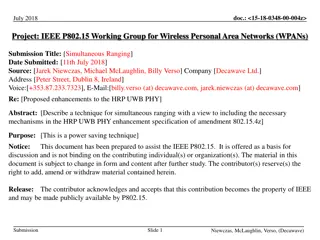Revolutionizing Data Management with HTAP Databases
Organizations handle a vast amount of data daily, necessitating efficient systems like Hybrid Transactional Analytical Processing (HTAP). This advanced system streamlines online transaction processing (OLTP) and analytical processing (OLAP), enabling real-time insights and prompt actions. HTAP datab
2 views • 22 slides
Population and Housing Censuses Directorate - Midterm Review Mission Summary
The Population and Housing Censuses Directorate (PHCD) is actively involved in implementing various censuses, updating geographical databases, and conducting analytical studies. They are preparing for the next census in 2027 by learning from international experiences and modern methodologies. The di
0 views • 12 slides
National Conference of Enforcement Chiefs: Enhancing Tax Compliance and Enforcement Practices
The National Conference of Enforcement Chiefs held by the Commercial Taxes Department, Government of Andhra Pradesh, focused on nurturing tax compliance, targeting evasion cases, preventing harassment, and overseeing tax administration to curb high-pitch demands. The enforcement wing emphasized data
0 views • 16 slides
Cleveland Airport System Environmental Analytical Services Pre-Qualification Meeting Overview
The City of Cleveland, Department of Port Control is hosting a pre-qualification meeting for environmental analytical and regulatory services for the Cleveland Airport System. The meeting agenda includes project scope, safety and security requirements, operations, DBE requirements, and a Q&A session
0 views • 35 slides
Understanding Solutions and Precipitation Reactions
Solutions are classified as saturated, unsaturated, or supersaturated based on the concentration of solute in the solvent. Solubility plays a critical role in determining the amount of solute that can be dissolved in a solvent at a given temperature. Reactions yielding products of limited solubility
6 views • 10 slides
Analytical Balances Market Overview, Trends, Landscape Overview Forecast 2022-20
Adroit Market Research has included the Global Analytical Balances Market\u00a0research to its database in order to provide a thorough analysis of the variables driving a general market growth trend. The study contains a lot of information and is a useful tool for professionals in the field.
0 views • 5 slides
Introduction to Hanging Drop Technique in Microbiology
The hanging drop technique is a method used in microbiology to observe living microorganisms suspended in a fluid under a microscope. This technique allows for the examination of motility and morphology of bacteria, providing valuable information for research and analysis. By creating a wet mount us
0 views • 17 slides
Microbiology Study: Hanging Drop Technique in Department of Microbiology, College of Medicine
In the Department of Microbiology at the College of Medicine, the Hanging Drop Technique is utilized to study live microorganisms. This technique involves suspending microorganisms in fluid on a hollow ground slide, allowing for observation of their morphology under a microscope. By creating a wet m
0 views • 8 slides
Mastering the Long Jump Technique with Dr. Rajeshwari
The long jump, a combination of speed, technique, and precision, is more than just the jump itself. Dr. Rajeshwari explains the key elements such as setting up the approach, drive and transition phases, as well as the attack phase and final steps to excel in this track and field event. Learn from th
0 views • 10 slides
Overview of Analytical Positivism in Legal Theory
The Analytical Positivism school, also known as the Austinian school, emphasizes a sharp separation between law and morality. It views law as a command and emphasizes the importance of law as it is, rather than how it ought to be. This approach, championed by thinkers like John Austin and Jeremy Ben
0 views • 19 slides
Understanding Atomic Absorption Spectrophotometry in Analytical Chemistry
Atomic absorption spectrophotometry (AAS) is a spectro-analytical technique used for quantitative determination of chemical elements through the absorption of light by free atoms. This method is vital in various fields like biophysics, toxicology, and archaeology, allowing the analysis of over 70 di
0 views • 9 slides
PCR and Blot Techniques in Molecular Biology
Polymerase Chain Reaction (PCR) is a crucial technique for amplifying specific DNA segments rapidly and accurately. Developed in 1983, PCR is widely used in various fields such as molecular biology, forensics, evolution, and medical diagnostics. On the other hand, the Blot technique transfers DNA, R
0 views • 10 slides
Back Titration in Analytical Chemistry
Back titration is a technique used in analytical chemistry to determine the concentration of an analyte by reacting it with an excess of another reagent first, followed by titration of the excess reactant. This method is especially useful in cases where direct titration endpoints are difficult to di
2 views • 14 slides
Guidelines for Sample Labeling and Analytical Tests in Milk Products Analysis
Understanding the importance of food labeling in milk products analysis, this article covers the process of labeling samples for various analytical tests. It emphasizes the need for precise information on sample containers, including supplier details, sampling date/time, product nature, identificati
0 views • 13 slides
Understanding the Applications and Design of Analytical Ultracentrifugation
Analytical ultracentrifugation, a powerful technique in biochemistry, allows for precise measurement of sample properties and characterization of macromolecular complexes. The method is widely used for determining sample purity, equilibrium constants, and assembly mechanisms of biological complexes.
1 views • 17 slides
Importance and Methods of Job Evaluation in Human Resource Management
Job evaluation is essential in determining the value of a job within an organization, aiding in fair pay structures, employee selection, bonus calculations, and conflict resolution. However, it has disadvantages like inaccuracies, time consumption, and complexity. Steps involved include job analysis
3 views • 11 slides
Utilizing Sterile Insect Technique for Aedes Aegypti Control
The Sterile Insect Technique (SIT) is a biologically-based method used to manage key insect pests by releasing sterile insects to decrease population reproduction. This technique, developed through genetic manipulation and ionizing radiation, has been instrumental in controlling insect populations l
0 views • 13 slides
Comprehensive Analysis of MS Qual/Quant QC Mix for Platform Characteristics Assessment
The MS Qual/Quant QC Mix (Sigma Aldrich) is designed for daily use in evaluating platform characteristics such as repeatability, system stability, and inter-/intra-platform comparisons. The content includes XIC analysis for peptides, a detailed table showing the difference in peak ratios, and correl
0 views • 11 slides
Understanding Ion Exchange Chromatography in Analytical Chemistry
Ion exchange chromatography is a powerful separation technique that isolates ions and charged molecules based on their affinity for a charged matrix. This method involves interactions between the analyte and matrix influenced by factors like net charge, ionic strength, and pH. Through cation exchang
2 views • 18 slides
Urban Design Techniques for City Improvement
Urban design techniques play a crucial role in urban improvement by providing concepts and tools for city building. Some of these techniques include the Open Space Technique, Transportation System Technique, Capital Network Technique, Public Policies Technique, Physical Design Technique, Plug-in Tec
1 views • 11 slides
Efficient Nursing Care with Bag Technique: Principles, Considerations, and Steps
Learn about the Bag Technique in nursing, a method utilizing a public health bag to perform procedures during home visits efficiently and effectively. Explore the principles, considerations, and steps involved in implementing this technique to minimize infection spread and ensure optimal patient car
0 views • 21 slides
Gas Chromatography: Introduction, Theory, Instrumentation, Derivatization
Gas chromatography is a powerful analytical technique used for separating and analyzing volatile compounds. It involves a mobile gas phase passing through a stationary phase, with components in the mixture interacting differently, resulting in separation. The technique dates back to 1905 and has evo
0 views • 12 slides
Understanding Atomic Spectroscopy and Atomization in Analytical Chemistry
Explore the principles of atomic spectroscopy through examples and theories, focusing on topics such as the Boltzmann distribution problem and atomization processes using flames. Learn about the challenges and complications in atomization, including issues with nebulization efficiency and poor volat
4 views • 20 slides
Shot Put Technique Overview
Shot put technique involves specific steps from holding the shot correctly to the final throwing position. It includes holding the shot at the base of the fingers, raising it above the head, positioning the body correctly, and executing the throw with a focus on using the legs and hips effectively f
0 views • 8 slides
Understanding the Courts' Perspective on the Reid Technique
The Courts' view on the Reid Technique emphasizes following established guidelines, avoiding coercion, and treating subjects with respect. They caution against making promises or threats, denying rights, or conducting excessively long interrogations. The core principles include conducting interviews
0 views • 89 slides
Understanding Empirical vs Analytical Expressions in Natural Language Processing
Restricted quantifiers and literal analysis in natural language processing reveal the distinctions between empirical and analytical expressions. While empirical expressions refer to non-trivial intensions that require empirical investigation, analytical expressions denote constant intensions that ca
1 views • 19 slides
Wander Join: Online Aggregation via Random Walks in Database Workloads
Wander Join is a technique for online aggregation using random walks, addressing challenges in efficiency and correctness in both transactional and analytical database workloads. It allows for complex analytical queries such as TPC-H queries and provides insights into revenue loss due to returned or
0 views • 27 slides
Insights into the Kato and Miura Thick Smear Technique
In 1954, Kato and Miura introduced the cellophane thick-smear technique for direct fecal sampling, revolutionizing helminthic infection detection. This method evolved into the Kato-Katz technique, providing advantages like precise egg quantification but facing challenges with hookworm egg visualizat
0 views • 19 slides
Exploring Alpha Cluster Structure in Nuclei Using Thick Target Inverse Kinematics Technique
Exploring the alpha cluster structure of nuclei through the thick target inverse kinematics technique for multiple alpha decays. This study investigates alpha clustering in nuclei, potential alpha condensates, and the application of the inverse kinematics technique in detecting multiple alpha emissi
0 views • 14 slides
Impulse Excitation Technique for Monitoring Green Ceramics During Firing
The Impulse Excitation Technique (IET) is a nondestructive testing method employed to monitor the elastic properties of green ceramics as they undergo firing processes. This technique allows for the analysis of phase changes and material behavior at high temperatures, providing valuable insights int
0 views • 6 slides
Innovative Weed Control Technique for Commercial Pineapple Cultivation
This research proposal focuses on developing a cost-effective technique to control weeds in commercial pineapple cultivations to improve yields and income for farmers. The introduction provides insights into the current status of pineapple cultivation in Sri Lanka, highlighting the challenges faced
0 views • 15 slides
Understanding Acid-Base Titration in Analytical Chemistry
Analytical chemistry involves analyzing material samples to determine their chemical composition. Acid-base titration is a technique used to find the concentration of an unknown solution by reacting it with a known concentration solution. This process, involving neutralization reactions and pH indic
0 views • 4 slides
Overview of Auger Spectroscopy in Materials Characterization
Auger spectroscopy is a powerful technique used for materials characterization, involving the emission of Auger electrons to analyze the elemental composition of a sample. Named after Pierre Auger, this method provides valuable information about the surface properties of materials. The technique is
0 views • 24 slides
Applications and Importance of X-ray Fluorescence Spectroscopy in Analytical Chemistry
X-ray Fluorescence Spectroscopy (XRF) is a vital analytical technique used for qualitative and quantitative analysis of elements based on their X-ray emission characteristics. Dr. Uma Sharma, a Professor at Vikram University, details various X-ray analytical methods, including X-ray emission, Auger
0 views • 21 slides
Exploring Analytical Chemistry: Course Overview and Objectives
This article provides insights into the field of Analytical Chemistry, outlining a course syllabus, objectives, topics covered, and grading criteria. Analytical Chemistry involves obtaining and processing information about the composition and structure of matter. Analytical chemists play a crucial r
0 views • 15 slides
Mössbauer Spectroscopy: Principles and Applications
Mössbauer Spectroscopy is a technique discovered by Rudolf Mössbauer in 1958, based on the recoilless emission and absorption of gamma radiation. It is used to identify minerals, determine redox states, quantify mineral abundancies, and assess crystallinity. The method involves analyzing typical s
0 views • 14 slides
Improve Your Swimming Technique with These Tips
Enhance your swimming technique with valuable tips from Atlantic Masters. Learn how to swim more efficiently and faster by adjusting your technique to fit your goals and flexibility. Explore techniques like Early Vertical Forearm, Full Stroke with No Early Exit, Breathing When and How, and overcomin
0 views • 8 slides
Understanding X-Ray Diffraction (XRD) Theory and Analytical Techniques
X-Ray Diffraction (XRD) is a powerful analytical technique used to study the crystal structure of materials. This method is based on the principle of X-ray diffraction by crystals, providing valuable information about the atomic arrangement within a material. By analyzing the diffraction patterns pr
0 views • 14 slides
Mastering Analytical Paragraph Structure for Critical Thinking in Writing
Understanding the foundation of critical thinking in writing through analytical paragraph structure is key to effective communication. Analysis involves exploring the who, what, when, where, and why of a topic, making claims, and drawing connections. Differentiating analytical paragraphs from standa
0 views • 6 slides
Enhancing HRP UWB PHY through Simultaneous Ranging Technique
This document discusses a power-saving technique known as simultaneous ranging, proposed for inclusion in the IEEE P802.15.4z standard amendment. The technique allows for efficient distance measurement in scenarios such as automotive applications by configuring multiple devices to respond simultaneo
0 views • 16 slides






